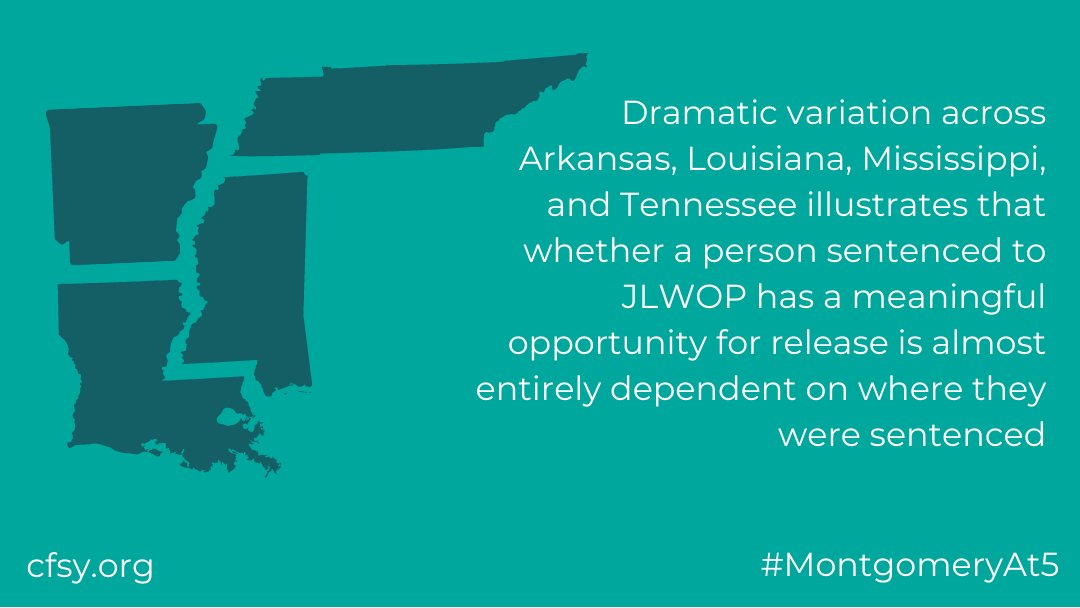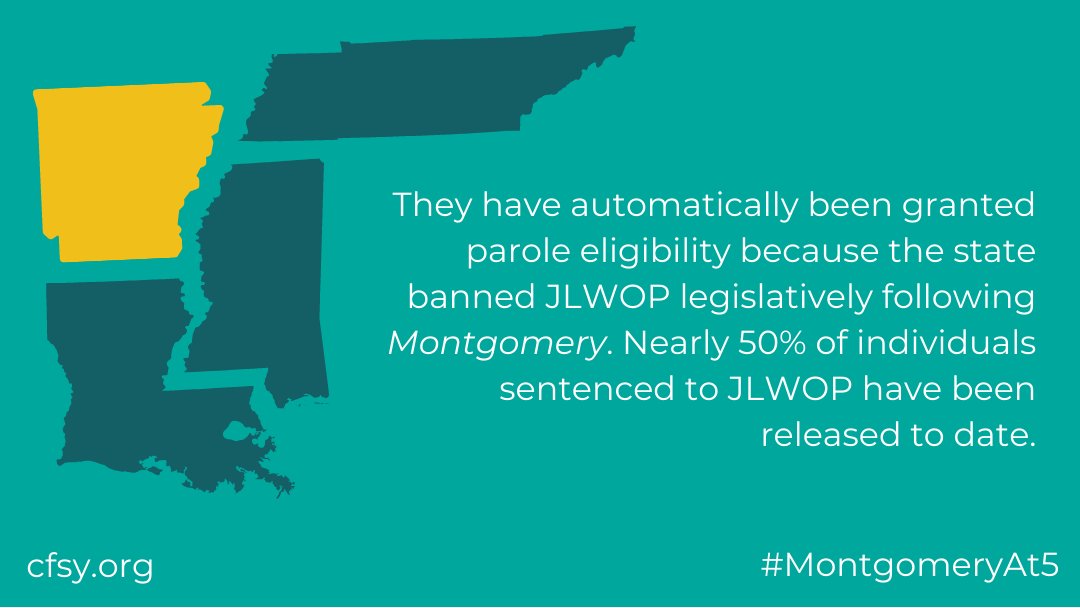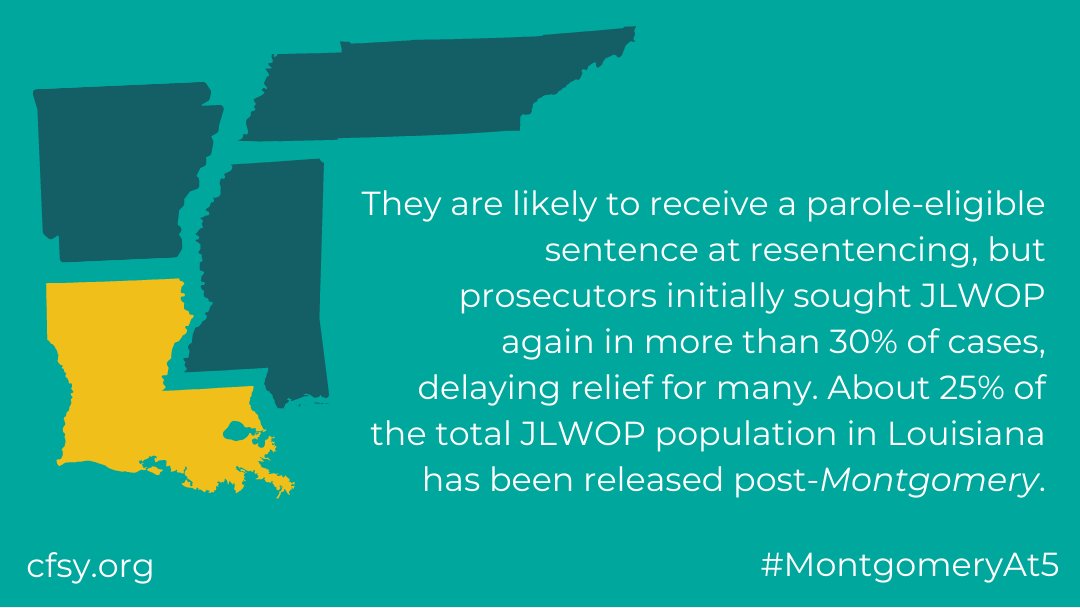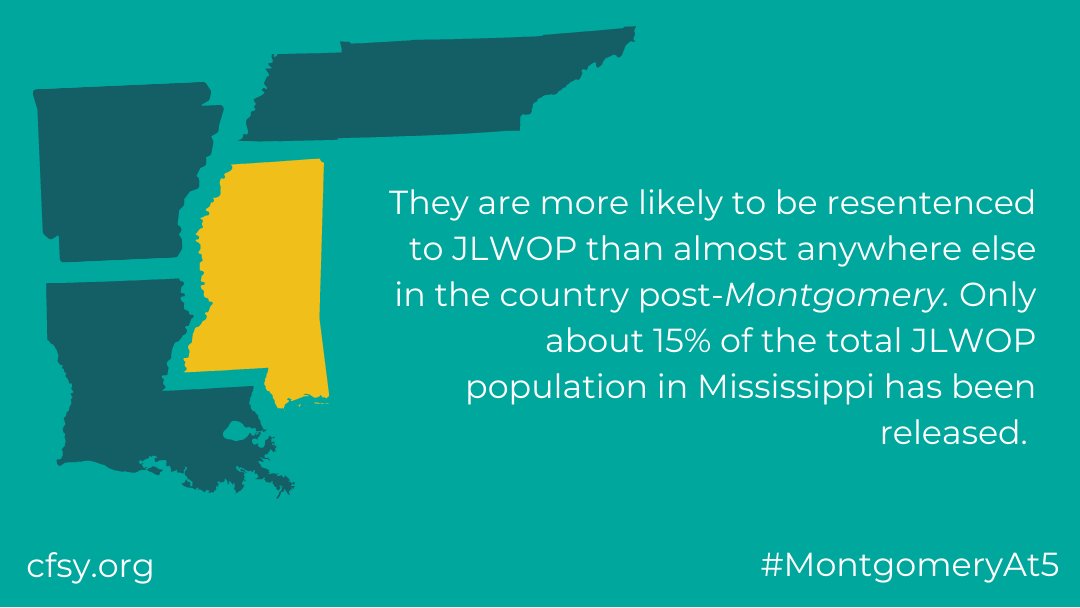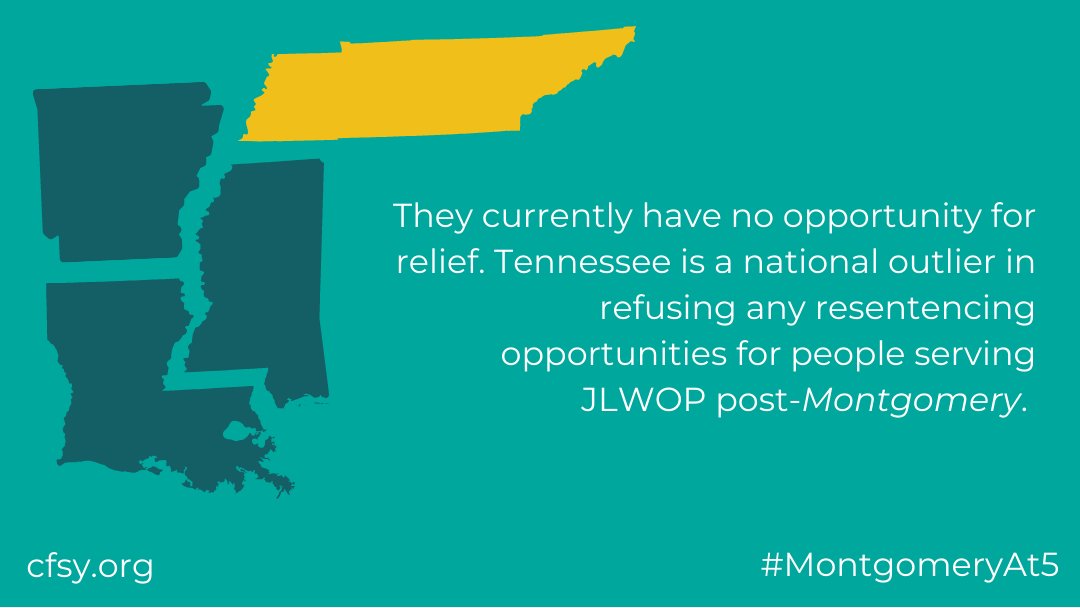Uneven implementation of the Montgomery v. Louisiana decision across the country makes clear why states and the federal government must ban JLWOP. Whether a person sentenced to JLWOP has a meaningful opportunity for release is almost entirely state dependent. #MontgomeryAt5
1/7
1/7
Dramatic variation at the border of Arkansas, Louisiana, Mississippi, and Tennessee illustrates the uneven implementation of Montgomery. If a person serving JLWOP when Montgomery was decided was sentenced in…
2/7
2/7
...Arkansas: They have been granted parole eligibility because the state banned JLWOP legislatively following Montgomery. Nearly 50% of individuals sentenced to JLWOP have been released to date.
3/7
3/7
...Louisiana: They are likely to receive a parole-eligible sentence at resentencing, but prosecutors initially sought JLWOP again in more than 30% of cases, delaying relief for many. About 25% of the total JLWOP population in Louisiana has been released post-Montgomery.
4/7
4/7
...Mississippi: They are more likely to be resentenced to JLWOP than almost anywhere else in the country post-Montgomery. Only about 15% of the total JLWOP population in Mississippi has been released.
5/7
5/7
...Tennessee: They currently have no opportunity for relief. Tennessee is a national outlier in refusing any resentencing opportunities for people serving JLWOP post-Montgomery.
6/7
6/7
Without bans on JLWOP nationwide, people across the country will be subject to vastly different standards, and hundreds will be denied a meaningful opportunity for release. It’s time for states to end the practice of sentencing children to die in prison.
#MontgomeryAt5
7/7
#MontgomeryAt5
7/7

 Read on Twitter
Read on Twitter